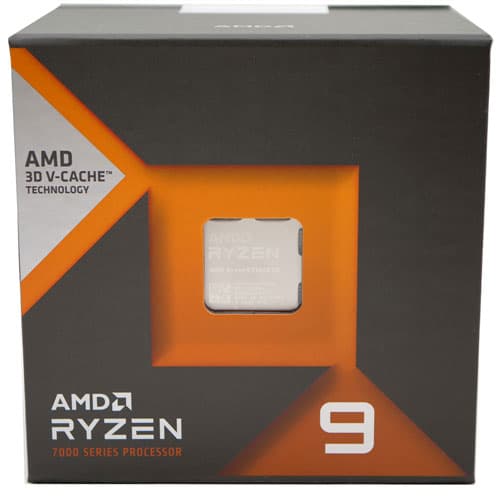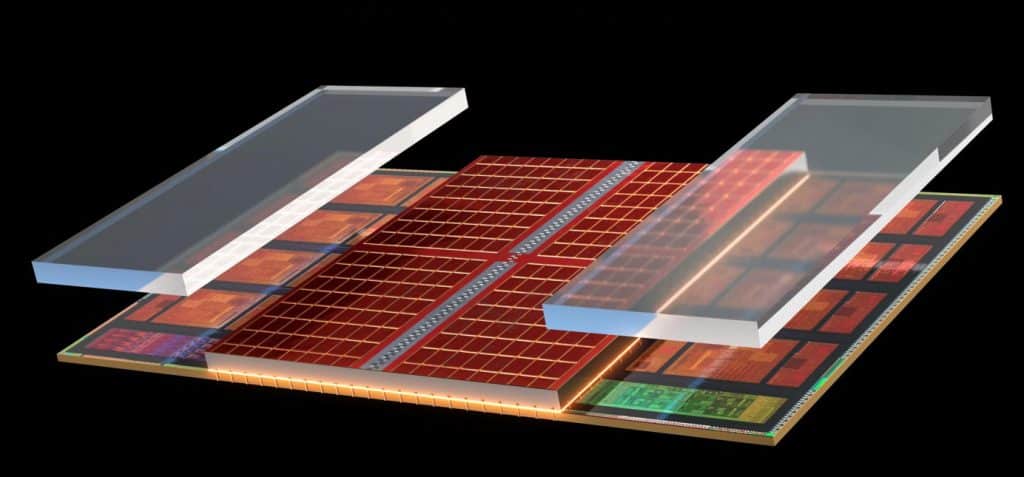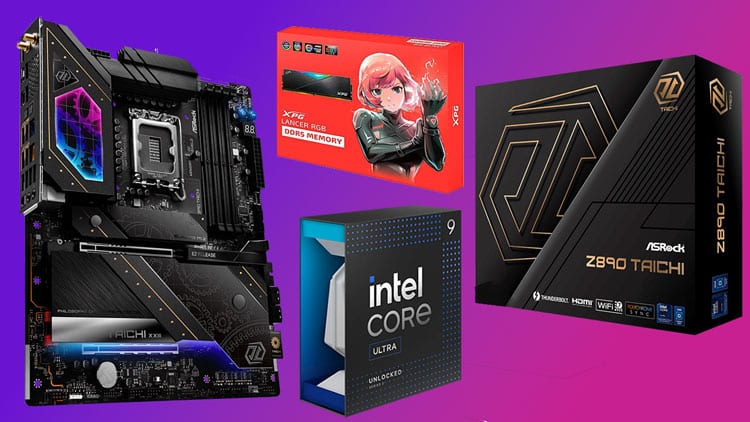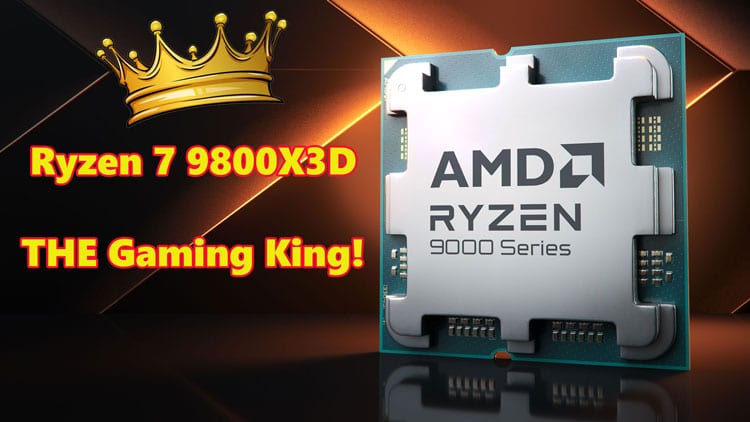The AMD Ryzen 9 7950X3D promises a notable gaming performance increase, thanks to the 3D V-Cache technology that it utilizes. Moreover, thanks to its 16-cores and 32-threads, besides gaming, you can also use it for content creation or other, heavy multi-thread tasks.
I have already reviewed several Zen 4 CPUs:
Since I have extensively covered the new AMD platform and chipsets in the reviews above, I will only cover the new things that the 7000X3D chips bring.
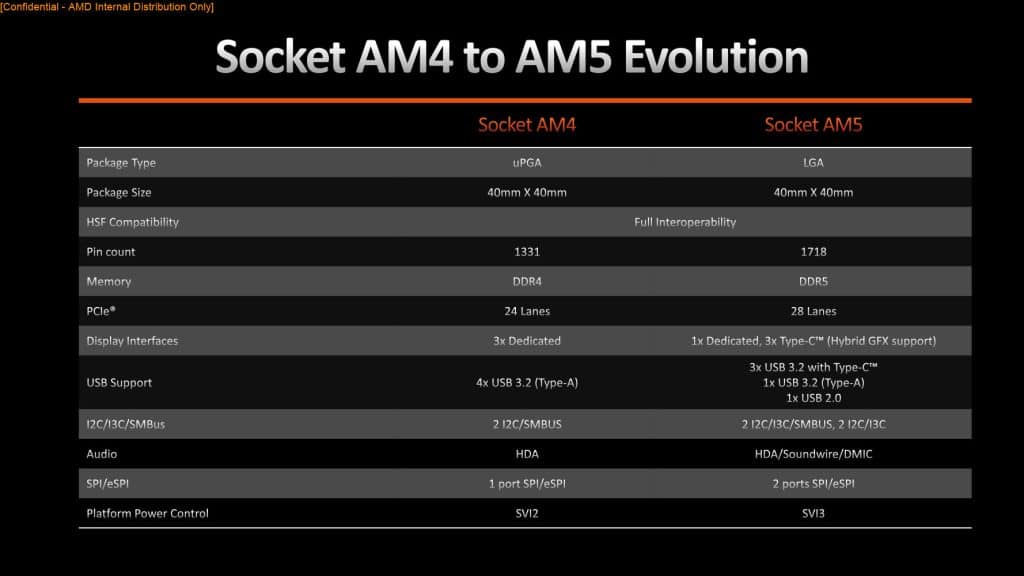
Compared to the first-generation 3D V-cache processor, the Ryzen 7 5800X3D, the new Ryzen 7 7800X3D has a 500MHz higher max boost clock, and the Ryzen 9 7950X3D has a 1200MHz higher max boost clock because of the mixed CCD configuration. AMD states that the Ryzen 7000 series, especially the models with many cores, have high operating temperatures by design, which don’t pose a problem for their performance and reliability. For the Ryzen 7000X3D models, the maximum Tjunction (TJMax) temperature is around 89C under intense multi-thread loads. The TJMax is the maximum safe operating temperature, not the absolute max temperature. In other words, according to AMD, there will be no issues with the CPU running at 89°C all day. For the multi-core 7000X models, this temperature is a bit higher, at 95°C.
The flagship Ryzen 9 7950X3D processor’s main opponent is the mighty Intel 13900K(S), the performance king in both applications and games. AMD promises up to 6% better HD gaming performance on average. Before I proceed, I have to devote a paragraph to AMD’s 3D V-Cache technology to help you understand why it offers a gaming performance increase.
In plain words, 3D V-Cache allows AMD to stack additional memory on the processor. While most modern PCs typically have large amounts of RAM, this type of memory is much slower to access than the ultra-fast memory used for caching built into CPUs. So doubling the amount of L3 memory, from 64MB on the 7950x to 128MB on the 7950X3D, can boost performance in specific applications that benefit from larger cache memory, including games.
The 7000X3D line consists of three members, with the two higher-end ones available immediately.
Specifications
| Model | Cores/Threads | Frequency | Cache (Overall) | TDP | MSRP | Competing CPU |
| Ryzen 9 7950X3D | 16/32 | 5.7/4.2 GHz | 144MB | 120W | $699 | Intel i9-13900KS |
| Ryzen 9 7950X | 16/32 | 5.7/4.5 GHz | 80MB | 170W | $699 | Intel i9-13900K |
| Ryzen 9 7900X3D | 12/24 | 5.6/4.4 GHz | 140MB | 120W | $599 | Intel i9-13900K |
| Ryzen 9 7900X | 12/24 | 5.6/4.7 GHz | 76MB | 170W | $549 | Intel i9-13900K |
| Ryzen 9 7900 | 12/24 | 5.4/3.7 GHz | 76MB | 65W | $429 | Intel i9-13900 |
| Ryzen 7 7800X3D | 8/16 | 5.0/4.2 GHz | 104MB | 120W | $449 | Intel i7-13700K |
| Ryzen 7 7700X | 8/16 | 5.4/4.5 GHz | 40MB | 105W | $399 | Intel i7-13700K |
| Ryzen 7 7700 | 8/16 | 5.3/3.8 GHz | 40MB | 65W | $329 | Intel i7-13700 |
| Ryzen 5 7600X | 6/12 | 5.3/4.7 GHz | 38MB | 105W | $299 | Intel i7-13600K |
| Ryzen 5 7600 | 6/12 | 5.1/3.8 GHz | 38MB | 65W | $229 | Intel i5-13600 |
| Ryzen 7 5800X3D | 8/16 | 4.5/3.4 GHz | 100MB | 105W | $449 | Intel i9-12900K |
The 7800X3D will be the most interesting option for gamers on a budget, going after the highly capable 13700K.
